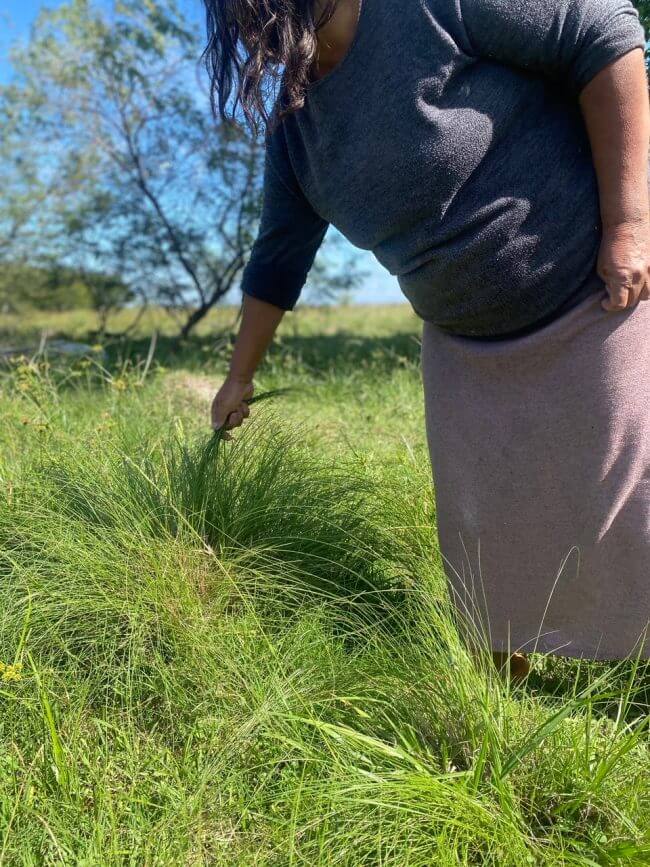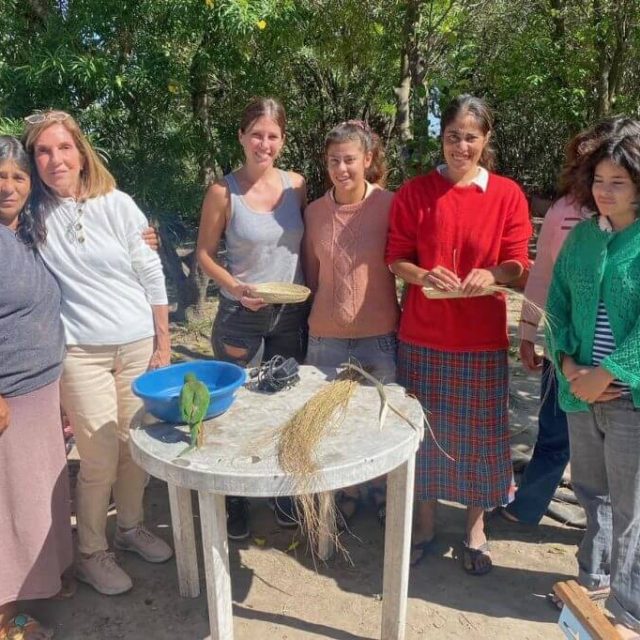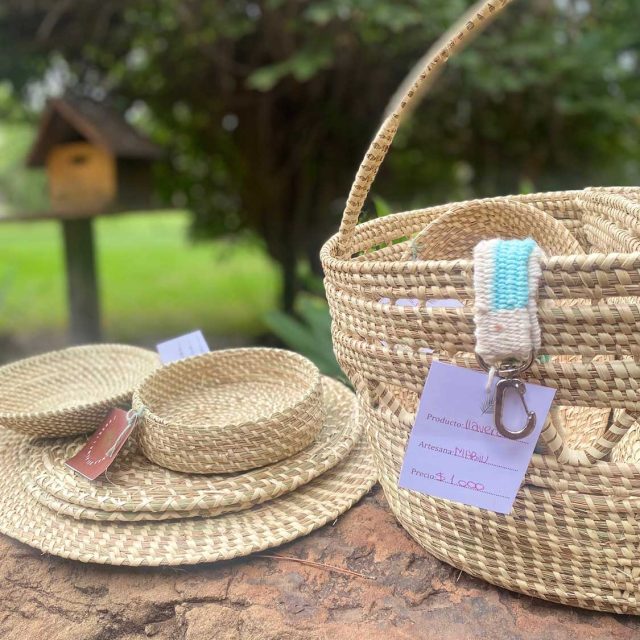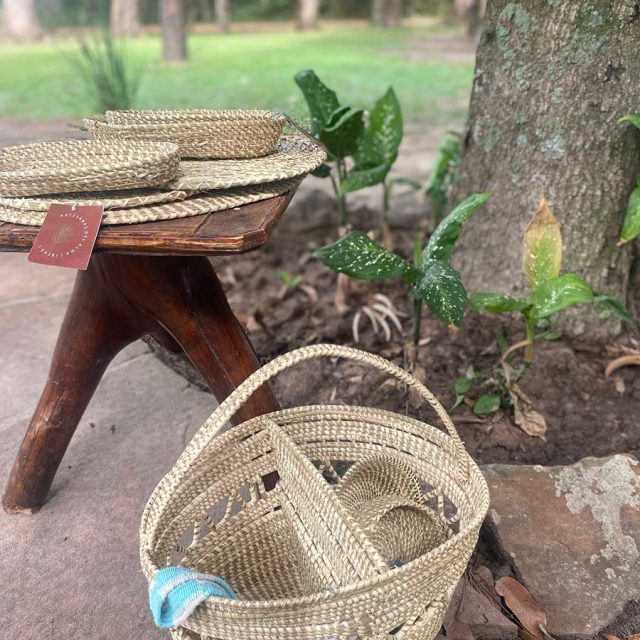The espartillo is a type of grass that grows in South America. Angela shows it to me. She gets up from her white plastic chair. I follow her. We leave behind the dry soil that surrounds her house and walk towards the garden. I stand a few steps behind her. I watch her while she walks. The midday sun follows us showing our path. Around us there is nothing, although this emptiness is partial. There is nothing to my urban eyes. The truth is that there we are surrounded by abundance. I wonder what her eyes are seeing.
A few minutes ago we were sitting around her table while she talked. Angela is a strong woman. She lives in Colonia Carlos Pellegrini, 360 km from Corrientes’ city. But this is not her home. She tells me with a sparkle in her eyes about a land where the soil is fertile, two hours away in a canoe and where she gave birth to her twelve children. I ask her why they left that place. I can see how she hesitates. She is not sure. Afterwards she says something about how “they stopped buying their leathers” . I infer that their exodus had something to do with the prohibition of poaching. I understand that in spite of the isolation they needed some exchange with the outside world. Nowadays, her husband and sons work for a salary, hired by the owners of the fields around them.
We are standing near the house where she lives. The walls are made of mud, plastic bags and other materials. Angela does not know exactly how old she is, nor the ages of some of her children. Many of them don’t have documents. To them, documents are pieces of paper without any meaning, although I can’t be sure of what they think. I struggle not to fall into the ethnocentrism of thinking that I know better, that they would live happier in some other place. I fight against my desire of bringing a teacher, a doctor, a tv, some cell phones, something that could bring them closer to the world that I know exists, my world. I wonder if they know who Messi is. But I silent my questions. I don’t want to make them uncomfortable. I speak in plural because slowly, some of Angela’s daughters begin to show up in our gathering. The time they took to get the necessary confidence to show themselves to me, is consistent with their isolation. I watch them getting closer. While I greet them I can’t stop thinking about the ones that are still spying through the walls. Three of them join us in our chat. They are wearing colorful sweaters. The weather is hot. The sun burns my skin. I look at my clothes and regret my choice. I have a sleeveless shirt and a broken jean with holes in my knees. I wish I had more appropriate clothing, but I try to accept the clash of realities such as it presents.
I arrived at Angela’s house through Leonor’s proposal. She was the one who had the initiative a few years ago, to get close to these women. Leonor is part of the Ñande Retá family. She had the vision of creating a safe space in the lodge, for women like Angela, where they could get together to share knowledge and work in their art pieces. Leonor has a noble bond with these women. I can see how they trust her. She hugs them, treats them with love. They enjoy this relationship, they laugh, there is a sort of pride in the air. My job is to accompany her in order to watch and share their stories in this blog.
The craft workshop, artesanas del alma, like they chose to be known, is the only social activity that these women have. They get together every Tuesday and Thursday to elaborate art pieces that are later exhibited in the lodge for tourists to buy. They work in wool and basketry made of espartillo. The espartillo. Angela crouches in order to show it to me. She holds it with her strong hands. I ask her many questions: how do they harvest it, how much time does it take to get dry, how quickly can she make a basket. I realize that I am going too fast. Angela answers all my questions: they cut it with a machete, if it’s sunny it dries in a few hours and she takes three days to make a basket.
We return to her house. Now, in the back yard I can see more women. Angela asks one of her daughters to bring the piece she is working on. She runs with enthusiasm to get it. She disappears between some trees into the fields. I imagine her sewing the espartillo during the day, surrounded by chickens, dogs, sheeps and land. A lot of land. I wonder what their thoughts are while she sews the piece that will soon be decorating the house of some tourist, a house very different from hers. Her name is Johana. With a big smile she shows me her art.




